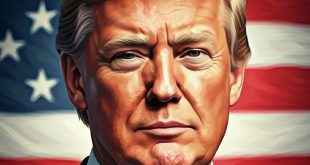On Monday, May 8, Dubai TV interviewed Mohamed Hashad, Head of Research and Development Dept. at Noor Capital and the member of the American Association of Technical Analysts, to comment on the latest developments in the financial markets and the performance of the most important financial assets at the beginning of the trading new week.
Debt Ceiling
Asked about the risk of the US government defaulting on its debt, which seems greater compared to risks of the same kind in 2011, ahat has led to the current situation and how can one interpret Treasury Secretary Janet Yellen’s statements, or rather her warnings, Hashad asserted that the financial markets witnessed debt ceiling issue before, specifically in 2011, and then it turned into a scenario that the markets had gotten used to for a long time. But the difference between what had happened in 2011 and what is happening now lies in several things, perhaps the most important of which is: The economic situation that the United States is going through, including high levels of inflation and high interest rates, but the fundamental difference is that the American debt has reached the official or legal limit, which is estimated at about $31.4 trillion; it is a very large number, as it represents approximately 130% of the Gross Domestic Product of the United States of America, and also represents approximately 11% of the global debt.
With regard to the recent speech made by Treasury Secretary Janet Yellen, Hashad believes that her remarks have little influence on the markets so far, and believes that it is just a cautionary speech exactly like the previous statements ny the US Secretary, as she wants to place the responsibility on the shoulders of the US Congress and wants to hold the legislators accountable in relation to the potential negative consequences if they fail to raise the US debt ceiling.
The repercussions of the debt ceiling crisis
It is known that defaulting on debts in general will lead to a kind of paralysis in the performance of the government, but at the global level in general, how can this impact global economy once it is materialized, Hashad replied, “Yes, failure to raise the debt ceiling may have dire consequences for the global economy in general, but there is no doubt that its most negative impact will be on the US economy, as the market’s confidence in the US dollar and the US economy will decline, and unemployment rates could rise above 5%. The US economy may lose nearly 800,000 jobs by 2024, and the cost of credit will rise and the cost of borrowing will increase for the American citizen, and thus may lead to a recession in the United States of America, and in turn the impact will be transmitted to the global economy.
Chances of continued bank collapse
In the context of talking about the United States, some believe that the collapse of another bank in the United States of America remains possible, is this related primarily to the levels of interest rates?
Hashad believes that this bank collapse scenario is highly expected, as the banking sector may witness the collapse of more banks, but it is likely that the first and last party that is responsible for such a crisis is the Federal Reserve, which decided to raise interest rates, in addition to the practices of many banks that made mistakes in some decisions, some banks gave loans to startups, some loans without guarantees or loans to companies outside the United States of America, in addition to banks that invested heavily in treasury bond yields.
“In the long term, all banks were not surprised that the interest rate is high, and I believe that the scenario may be repeated, but the Federal Reserve and the US government remain highly capable of resolving this crisis, especially within the procedures of the Deposit Insurance Committee that provided safety and insurance for all From banks and depositors during the previous periods, and the scenario may be repeated, and the United States of America can safely get out of this impasse”, Hashad added.
Oil
Asked about the oil markets, with regard to the fluctuations recorded by the markets, and is the OPEC + alliance heading for another measure, as happened in the past, in what was called the voluntary reduction, Hashad replied: “Almost a month has passed since the voluntary cut of 1.7 million barrels per day, but my personal point of view is that the last decision or voluntary cut of OPEC was just a maneuver in the markets, and this was very evident in the dramatic drop in oil prices, which touched the lowest level in fifteen months”.
Hashad suggested that investors in oil may have lost some confidence in OPEC’s recent decision, but in light of what the markets expect from the next meeting, Hashad believes there will be no change in production policy in light of the negative repercussions of raising interest rates and the continuation of the Russian-Ukrainian conflict, which may mean that OPEC and its member states will keep the oil output policy unchanged.
Gold
Asked about US interest rates and their link to gold prices, and how gold reacts quickly to developments in the US economy, therefore, in the event of a pause on raising the interest rate; where gold could be heading, Hashad replied: “Abandoning monetary tightening seems out of the question in the markets now, but in the event that the Federal Reserve decides to reduce or stop raising interest rates, I think that gold may react by surging more above $2,100 per ounce, but with the continuation of raising Interest rates, negative pressures remain in light of the continued rise in the US dollar and bond yields, which are factors that reduce the attractiveness of the yellow metal, but in light of the state of uncertainty and fears of a recession, there are reasons that push gold higher from time to time to remain a safe haven and a hedge against fluctuations.
Chinese economy versus the US economy
Finally, asked about China, and the news circulating about the rise in foreign reserves to levels exceeding 3 trillion dollars, if we compare that with the situation that the United States of America suffers with regard to debt in general, and how can this discrepancy be interpreted, Hashad replied: “The situation of the Chinese economy looks good now, with economic activity continuing to open significantly, and this is no
This undoubtedly leads to good economic performance, but there is a clear decline in the manufacturing industries, which greatly pressure the performance of the Chinese economy, but the US economy is still the best performer compared to the Chinese economy, and this was very clear from all the data and it was clear Likewise through the package of positive economic data released regarding the US economy recently.
 Noor Trends News, Technical Analysis, Educational Tools and Recommendations
Noor Trends News, Technical Analysis, Educational Tools and Recommendations




